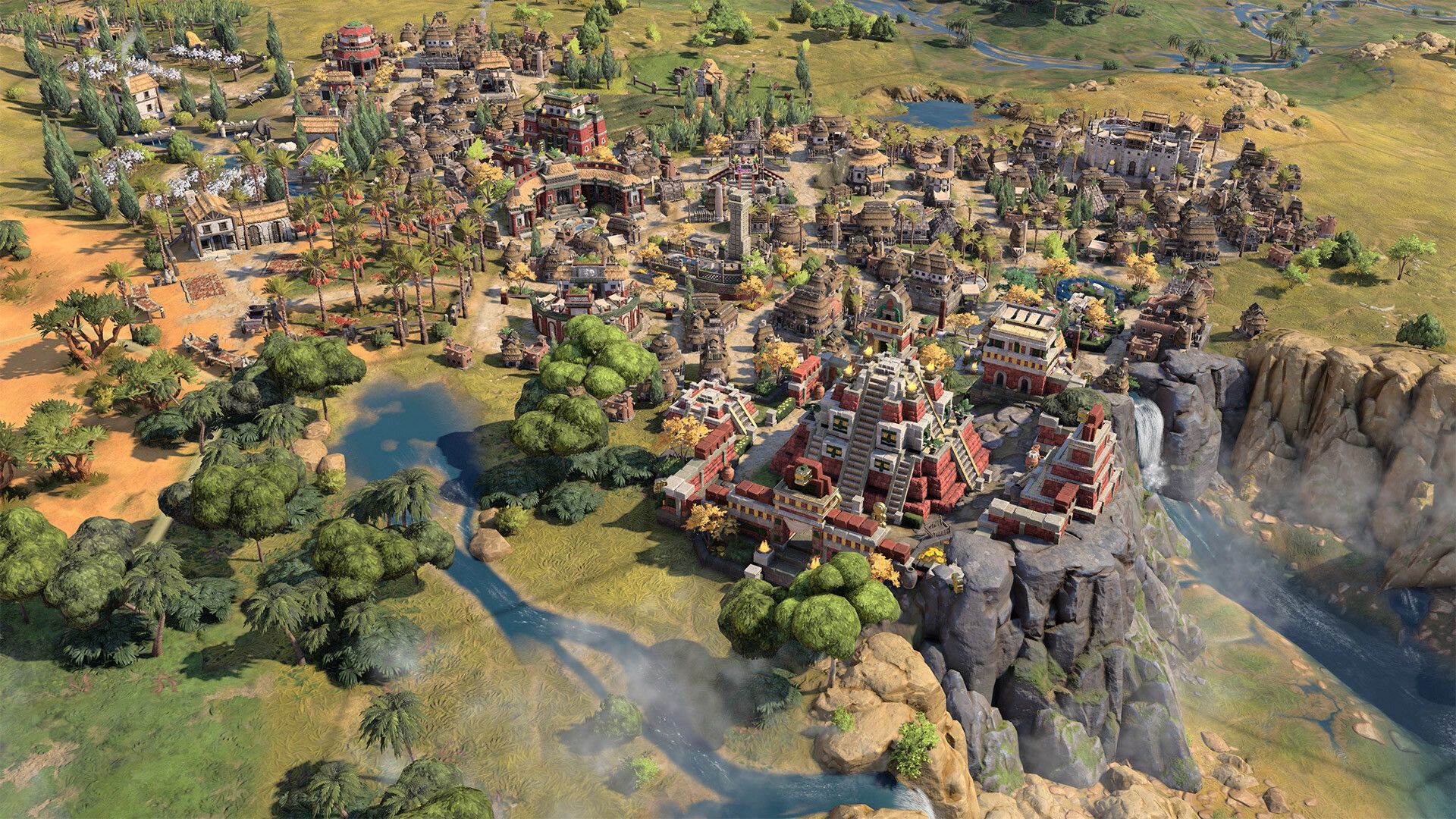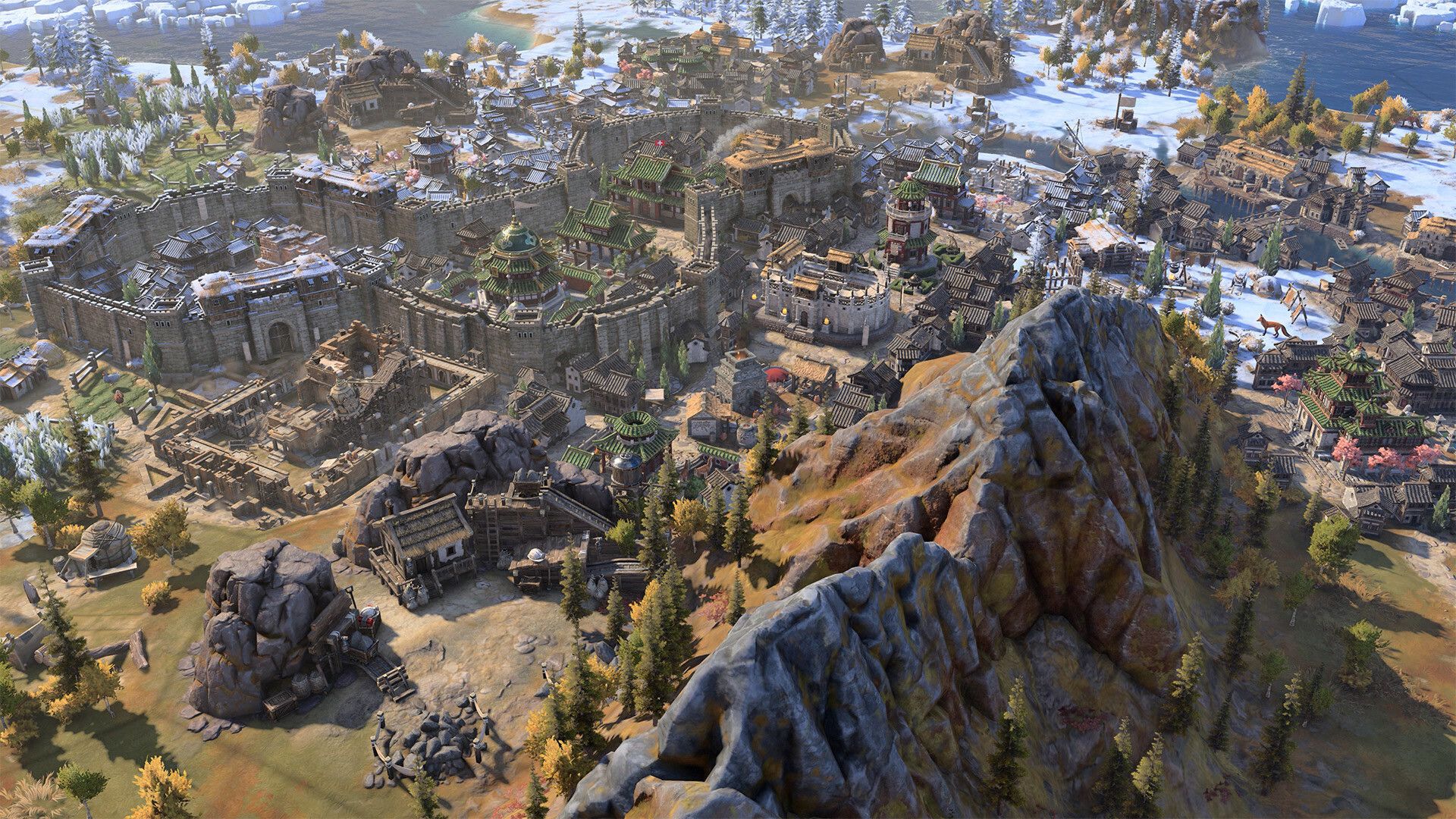There are many ways to play in the Antiquity age.
But it will prove divisive.
First, yourleader, theirmementos, andwhich civilization you’ll pair your leader with.
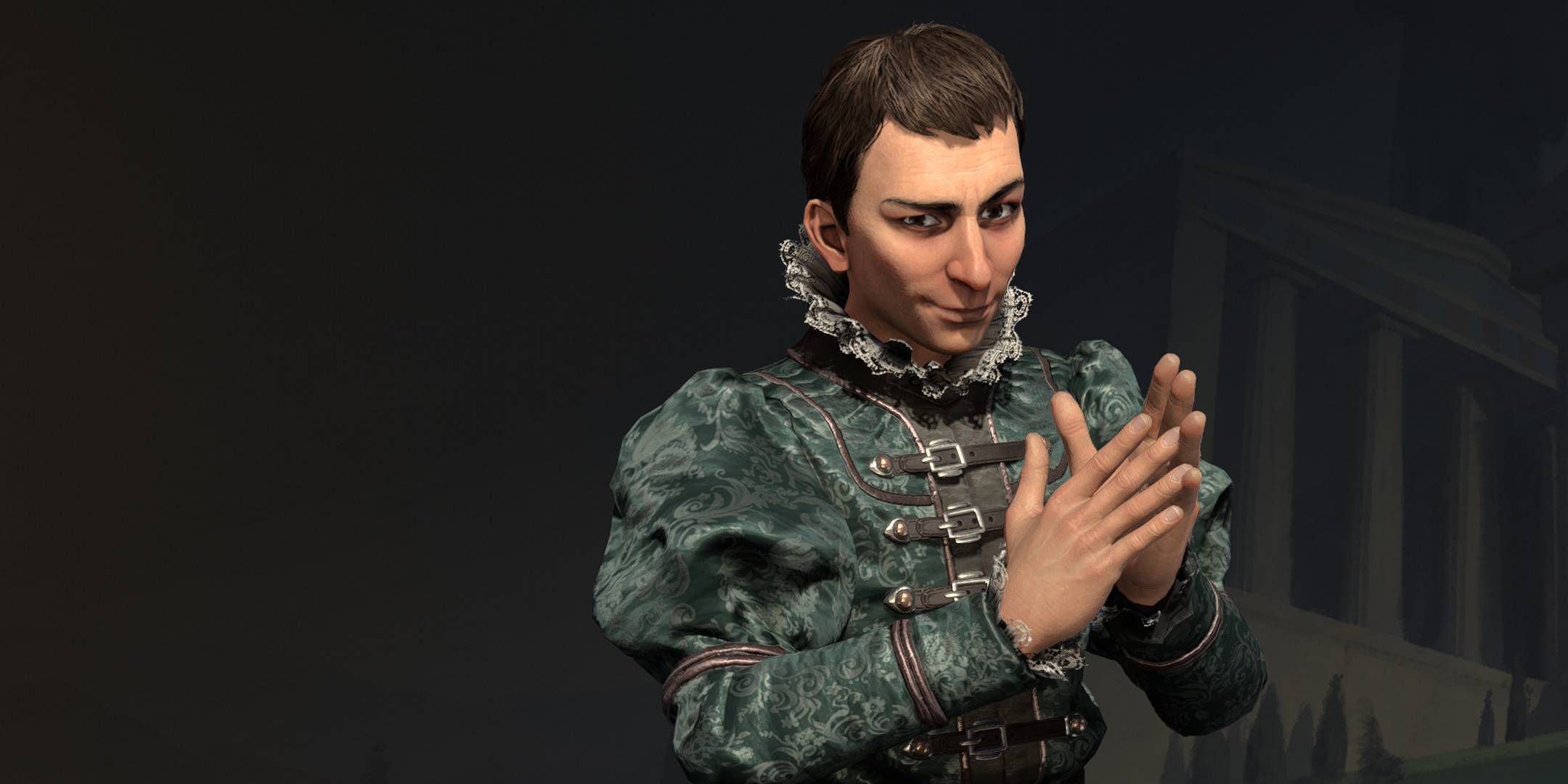
These are all game-changing elements.
In this example, our Founder has spawned on a river tile, withHorsesandMarblenearby.
It’s also a heavily wooded area.
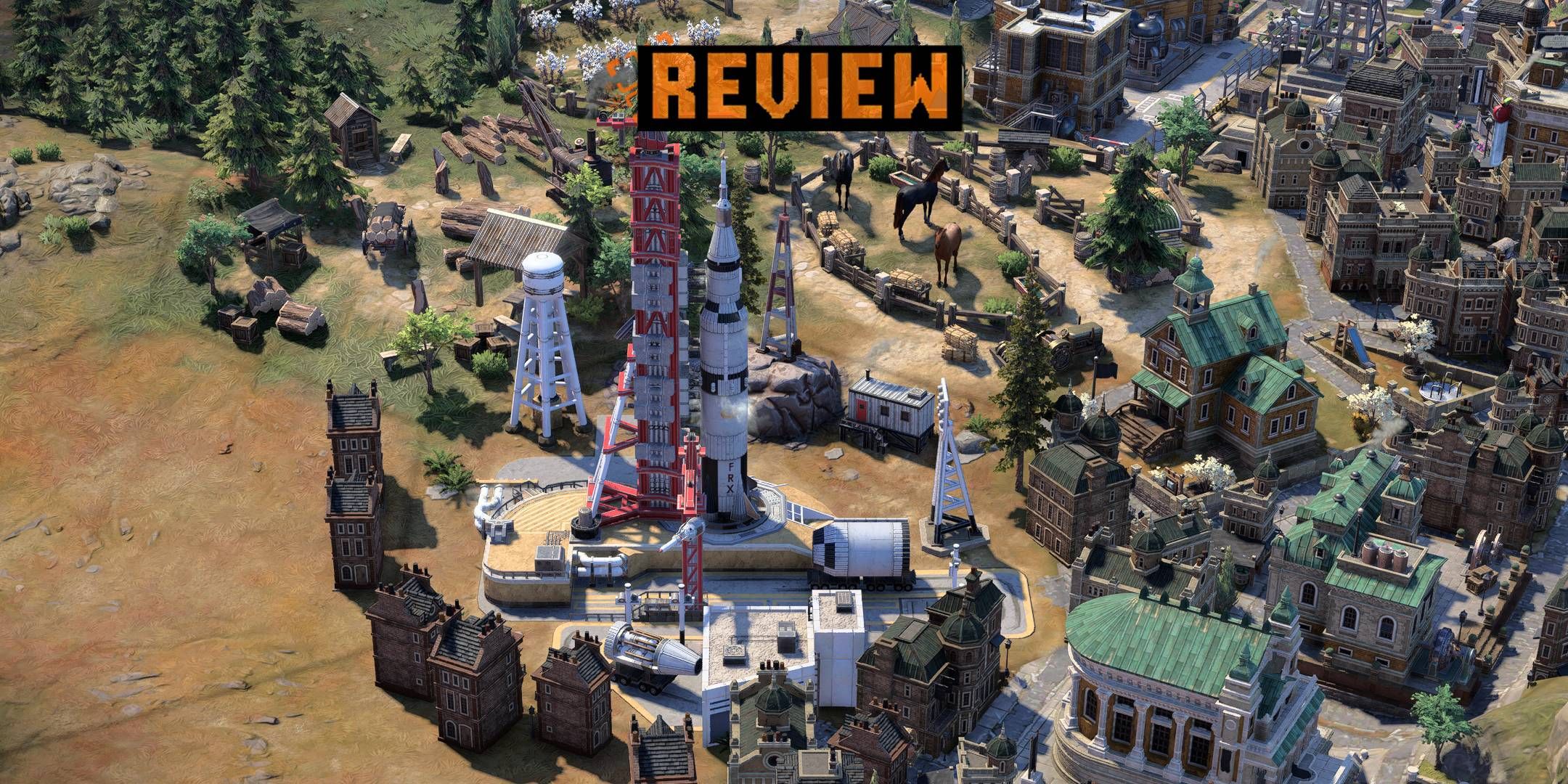
This may be because there are other accessible resources we don’t have vision of yet.
Early Scouting Strategy
Civilization 7’s goodie huts are very, very powerful.
Using the newSearchfunction on our Scout, we can reveal goodie huts up to 12 tiles away.
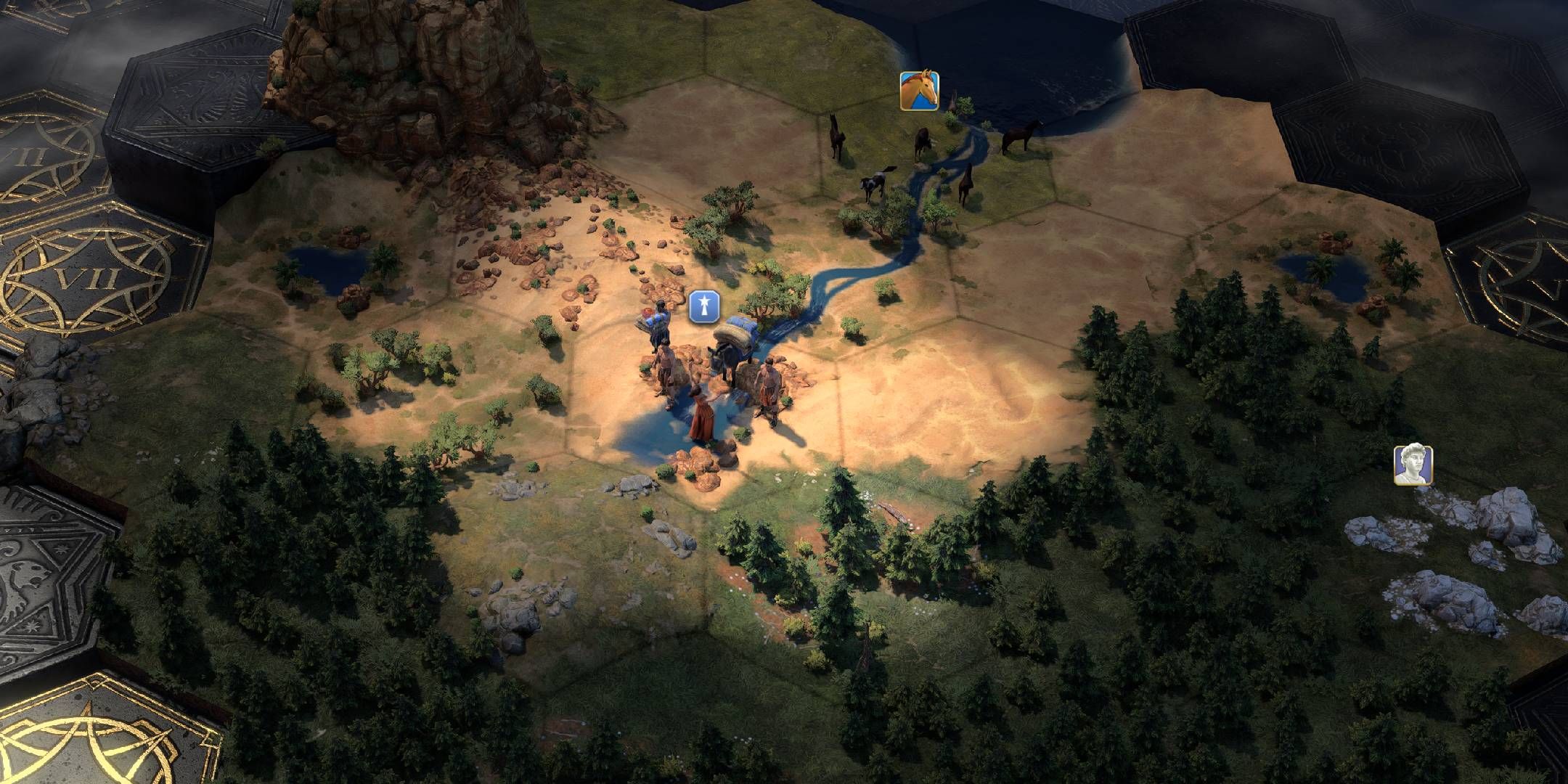
This reveals a Campfire to the south.
We head immediately in that direction with our scout to claim the early reward.
Befriending city states requiresInfluencewhich increases by a flat plus 10 at the beginning of the game.
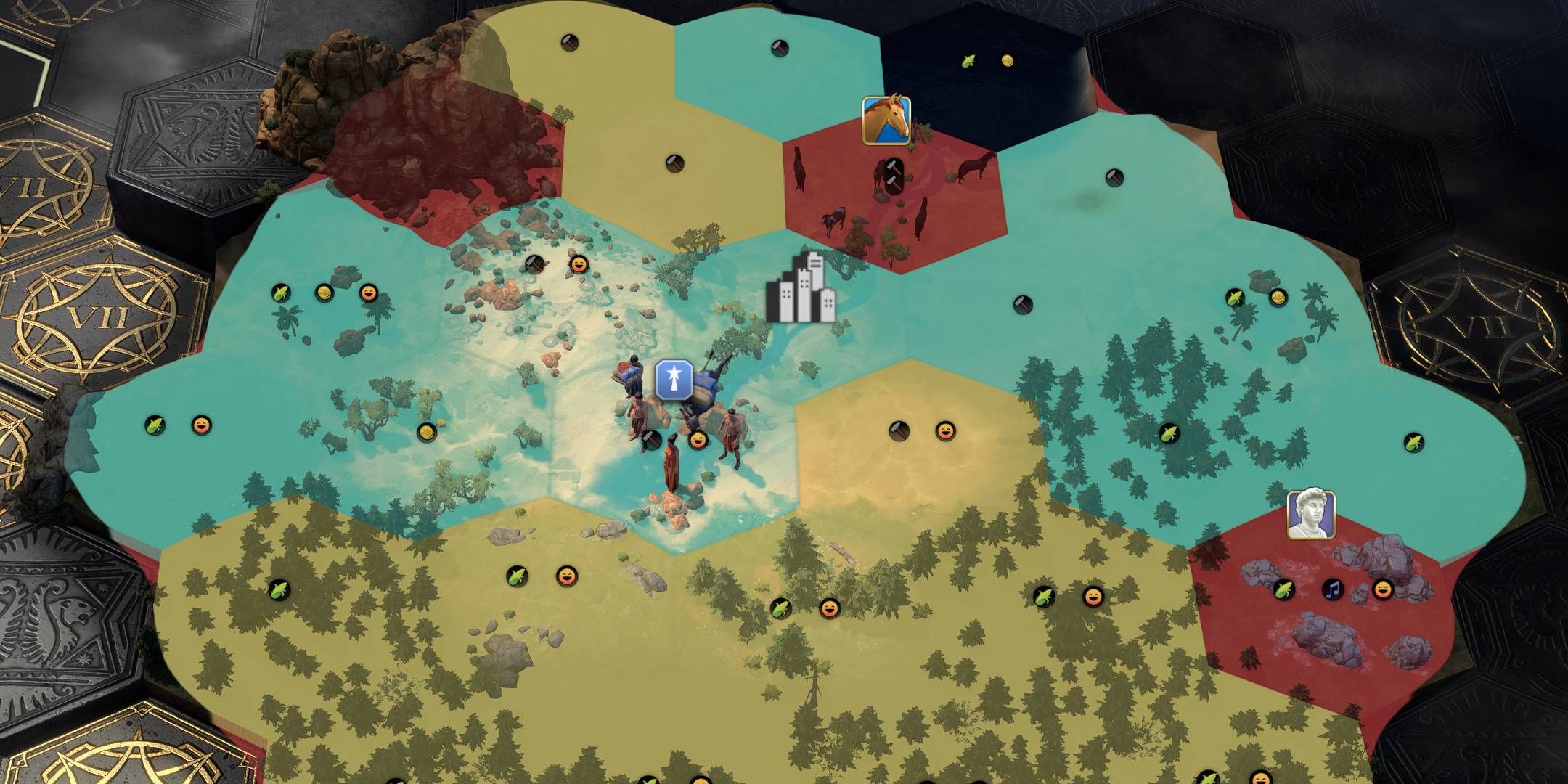
These are the sort of difficult decisions that Civilization 7 is all about.
In the Antiquity Age, you could aim for a cultural, military, economic, or scientific victory.
Each of these paths has its own unique milestones, quests, and rewards.
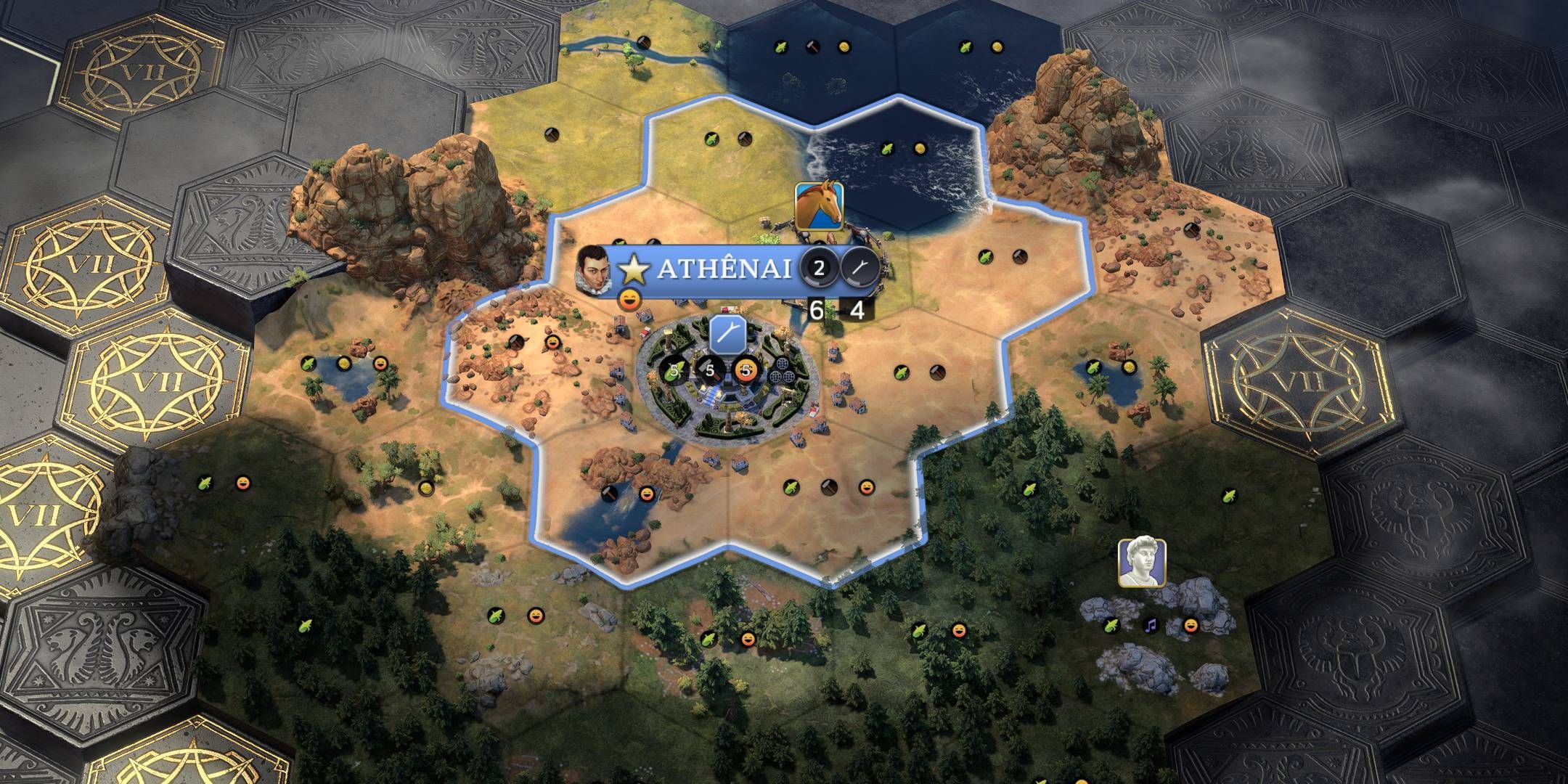
Victory is achieved when you reachseven constructed wonders.However, you might also earnmilestone pointsvia the Culture Victory path.
These will grant extra bonuses for the next age, including legacy points.
A Culture Victory will ensure that you have the option to begin aCultural Golden Agein the Exploration Era.
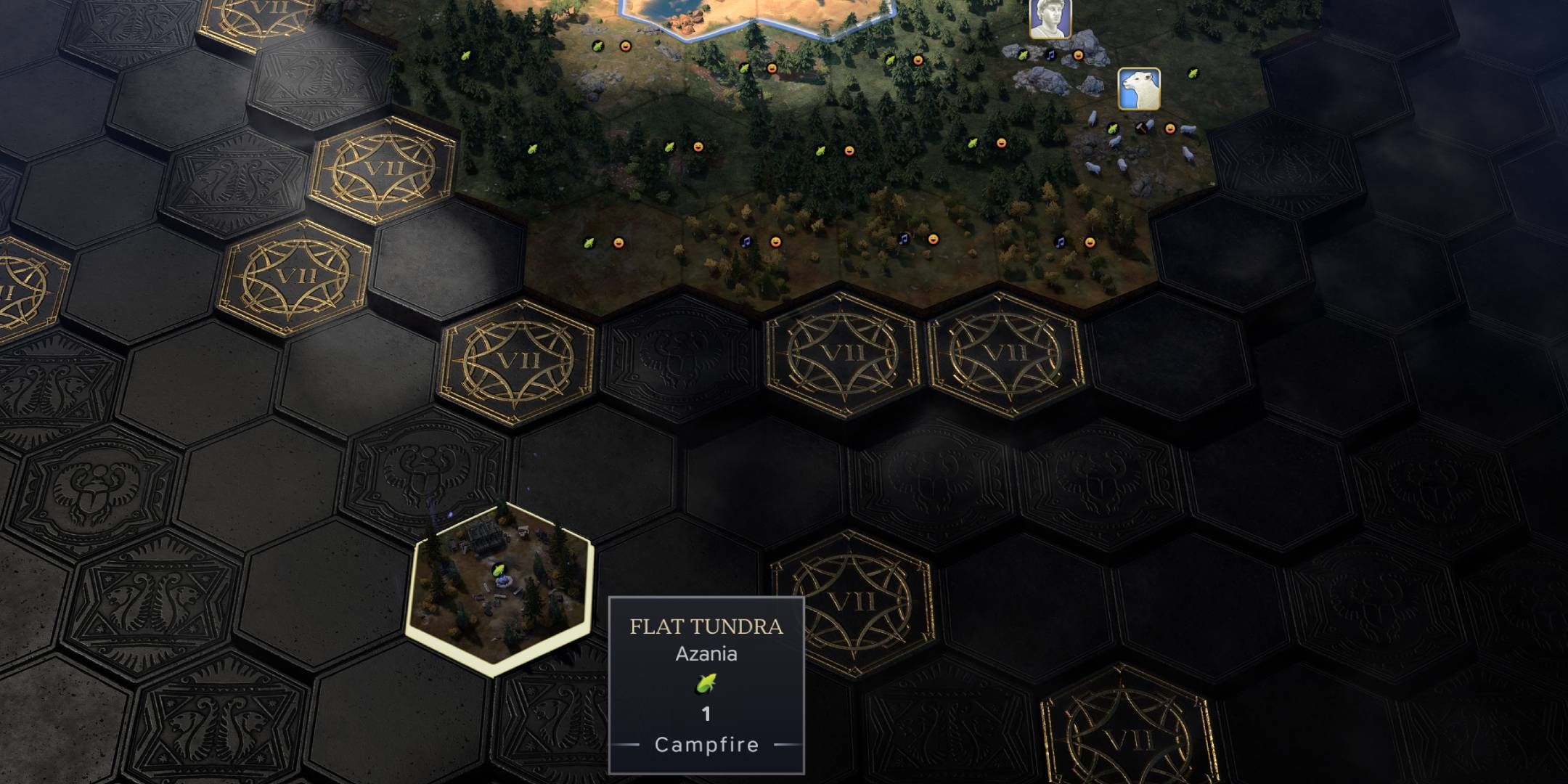
This will turn your regularAmphitheatersintoGolden Age Amphitheaters.
Conquered settlements count fortwo settlement points.
Economic Victory
The Economic Victory is all about trade.
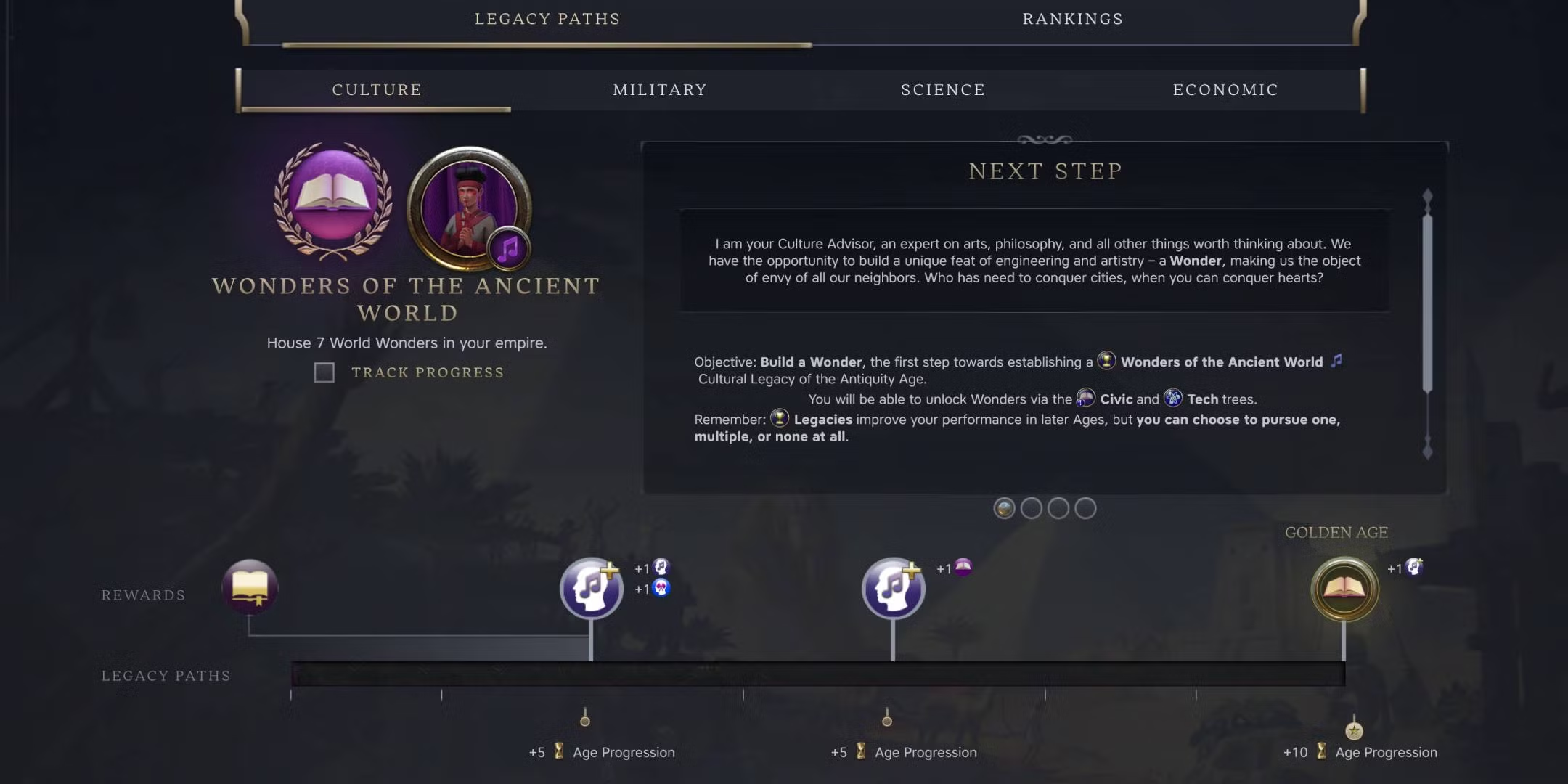
Otherwise, cities are converted back to towns.
This will usually be from researching the secondarymasteryof researched tech.
A Science Victory Golden Age will turn your Academies into Golden Age Academies.
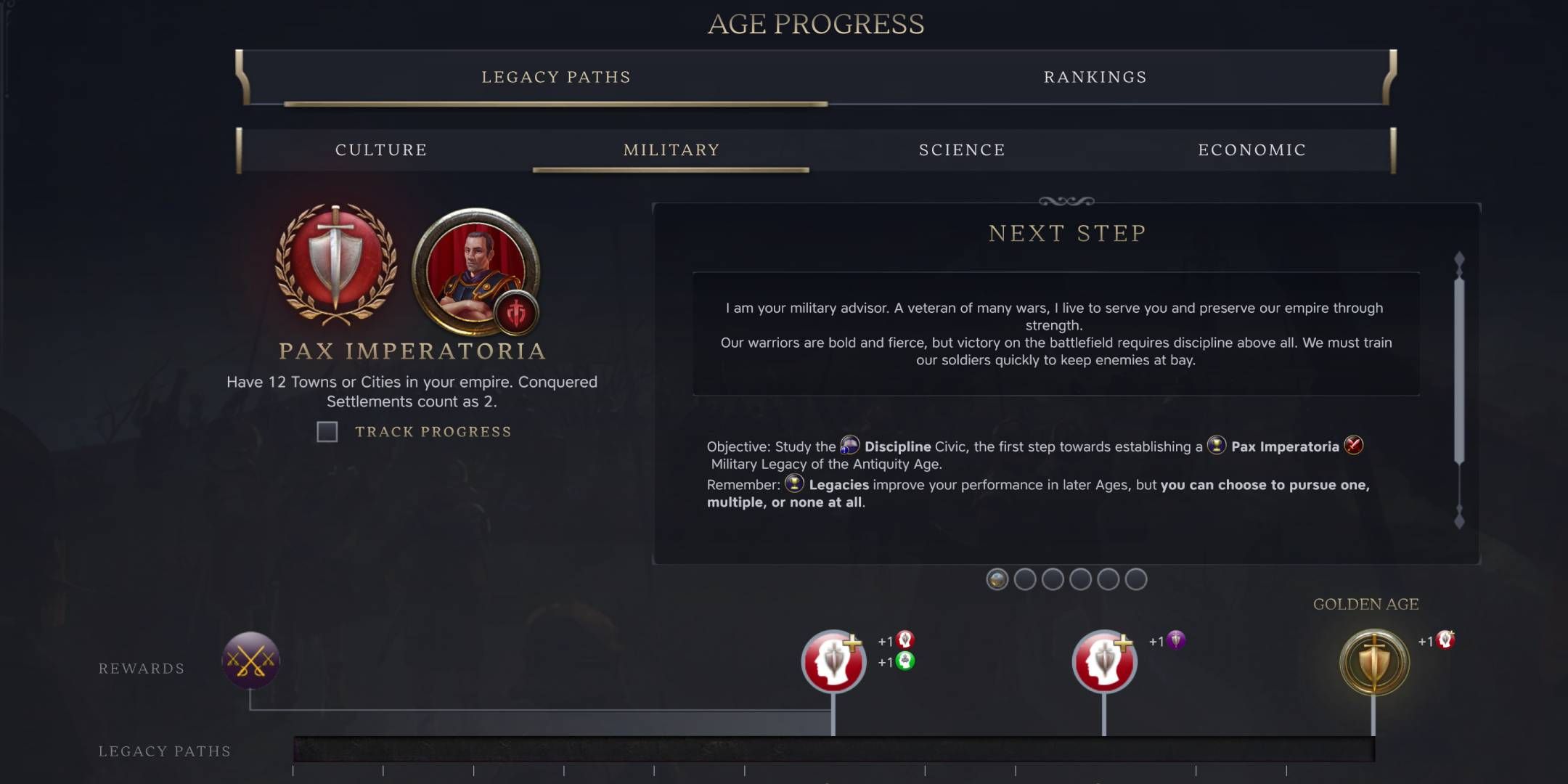
Policy Cards
Similar to Civilization 6, Civ 7 has a policy card system.
These also offer a lot of important bonuses and will shape the way your empire grows.
During the Antiquity age, where policy card slots are restricted, these choices are even more impactful.
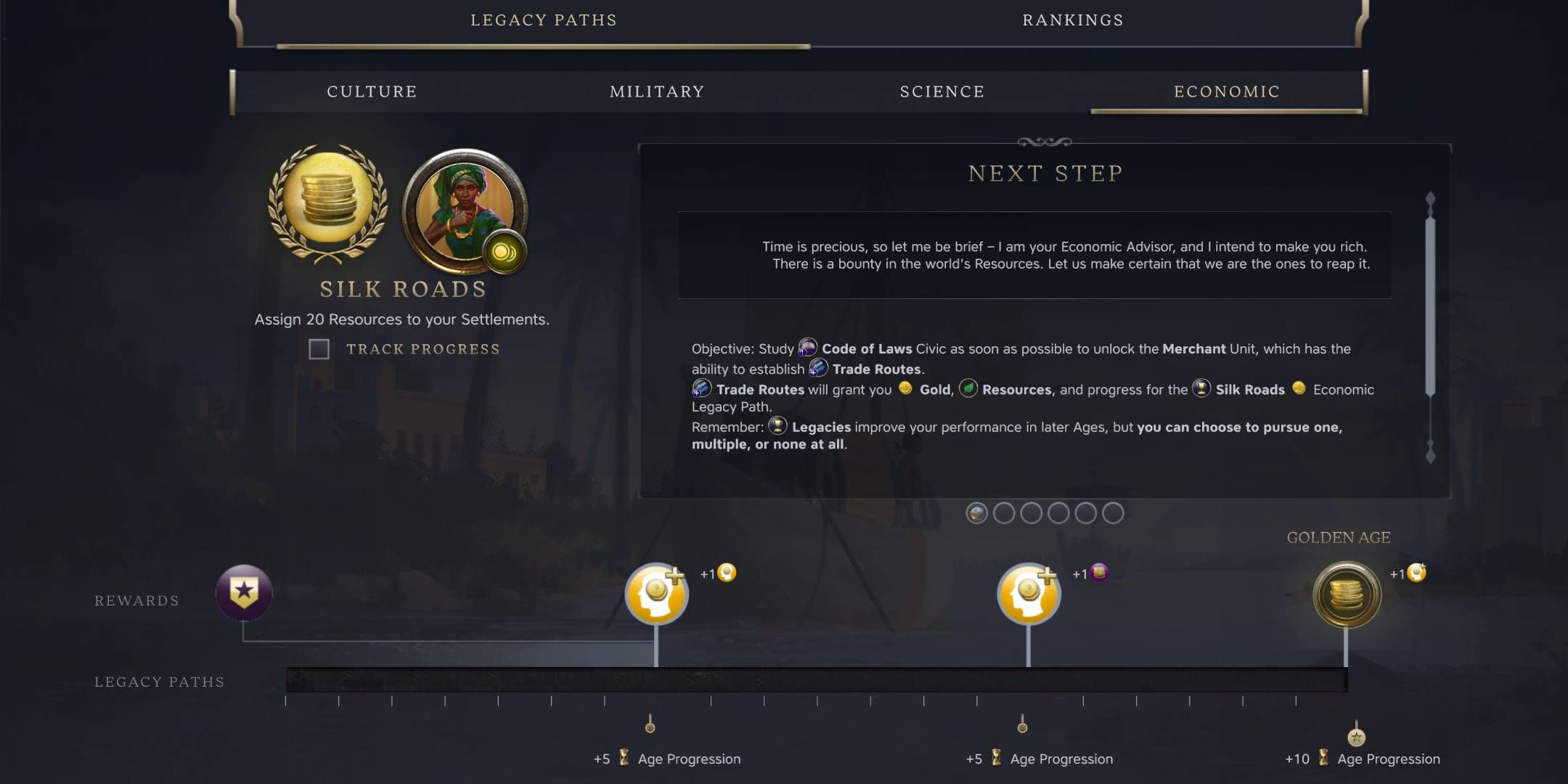
This will vary from game to game.
Technology And Civics
There are two research trees in Civilization 7: technology and civics.
Technology Tree
The tech tree is similar to previous iterations of Civilization.
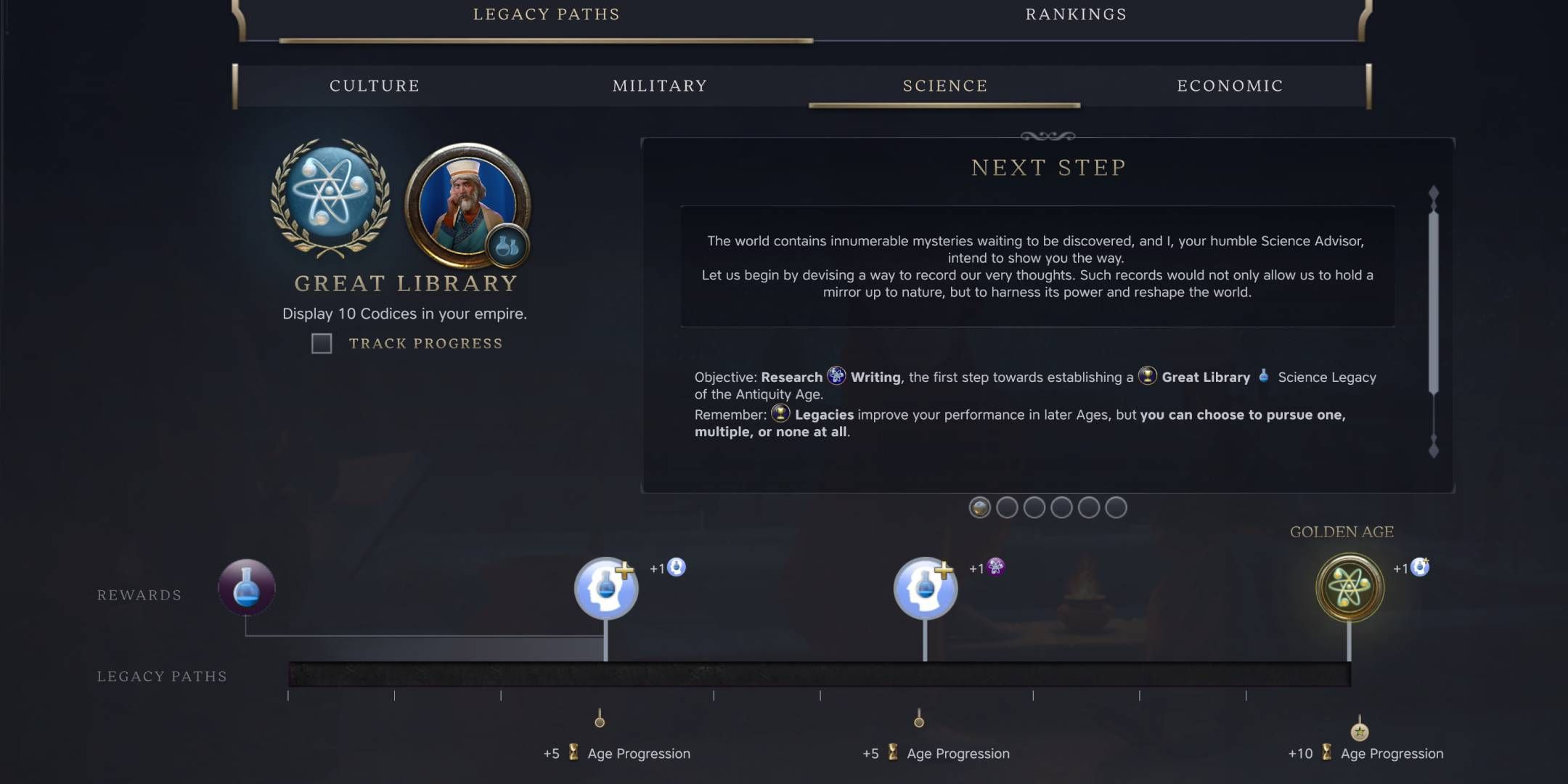
You select what you want to research, and you’ll earn it turn-by-turn depending on your science income.
There are three starting technologies to choose from:Animal Husbandry, Pottery, and Sailing.
The decision between these three all depends on your starting settlement and surrounding lands.

If you have pastures, go for Animal Husbandry.
If you have a lot of clay pits and mines, go for Pottery.
Science is very powerful in Civ 7, especially at the higher difficulties.
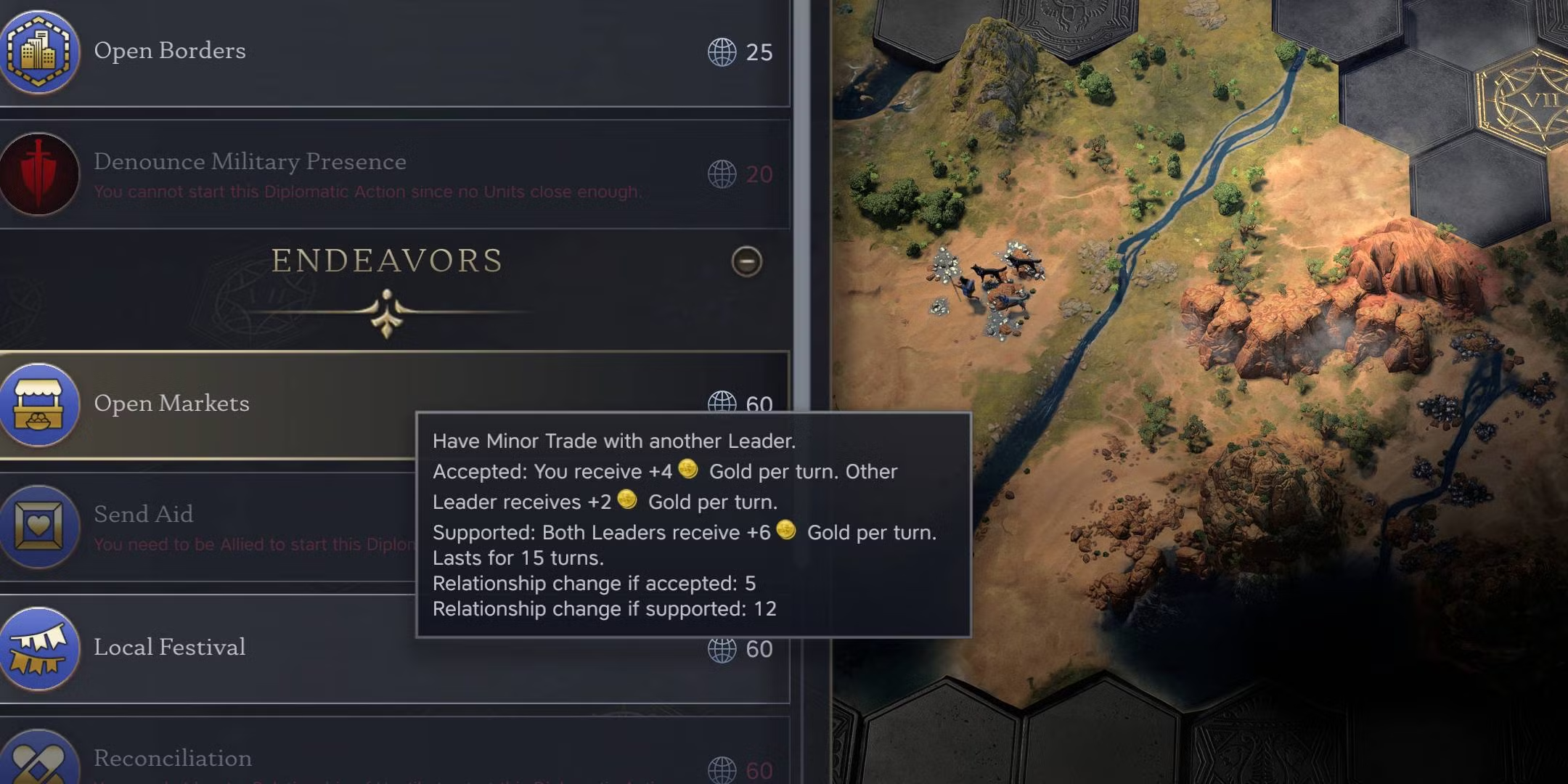
The AI receives major combat bonuses and the level of your units is a huge factor.
If your opponents are more scientifically-advanced than you, your armies likely won’t stand a chance.
This means you essentiallyhaveto pick up some military tech during the Antiquity age.
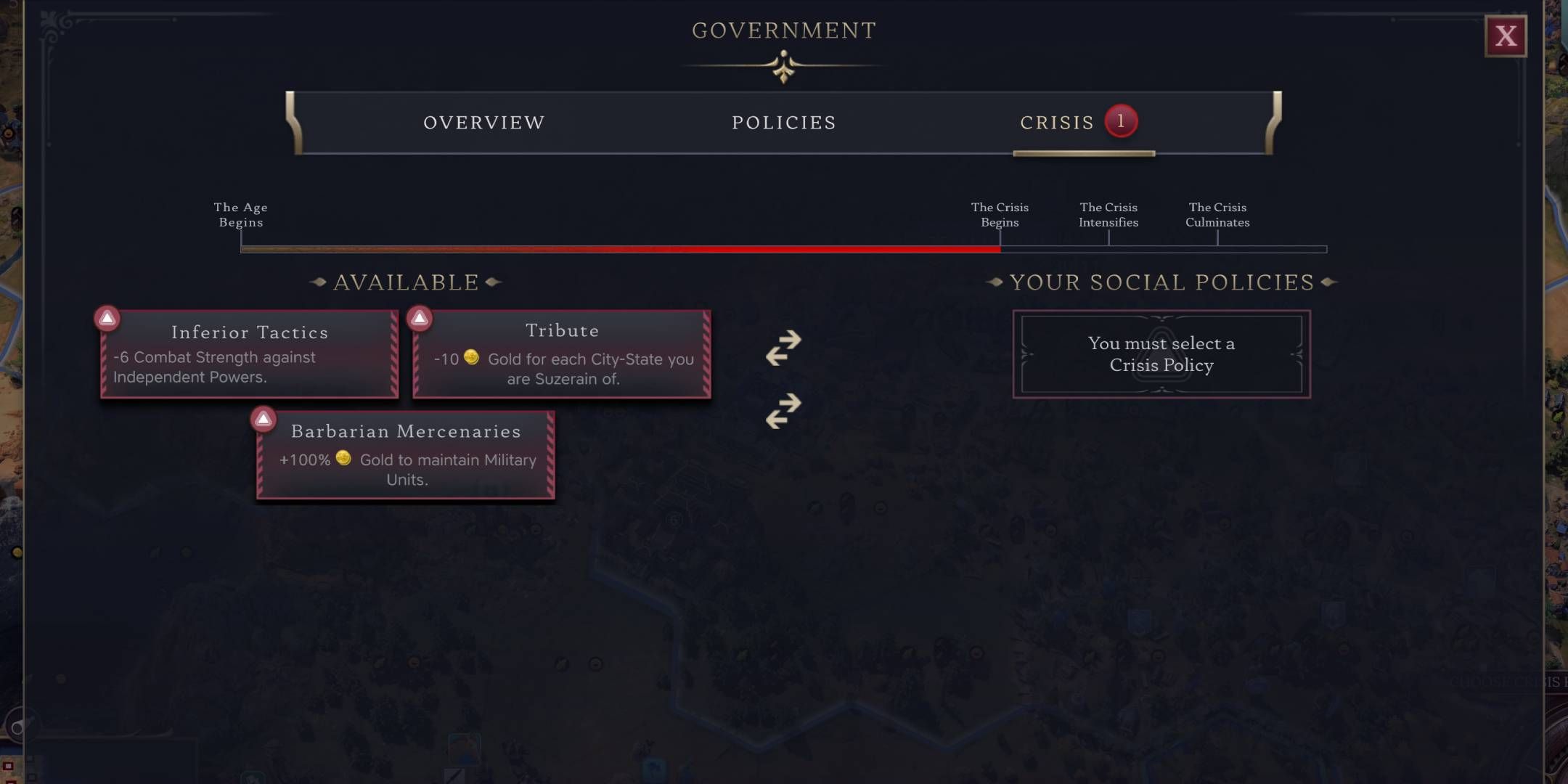
Civic Tree
There are actuallytwo Civic treesin Civilization 7.
First, you have theAntiquity Civicsand secondly, thecivics linked to your unique civilization.
you’re able to choose fromClassical Republic, Despotism, and Oligarchy.
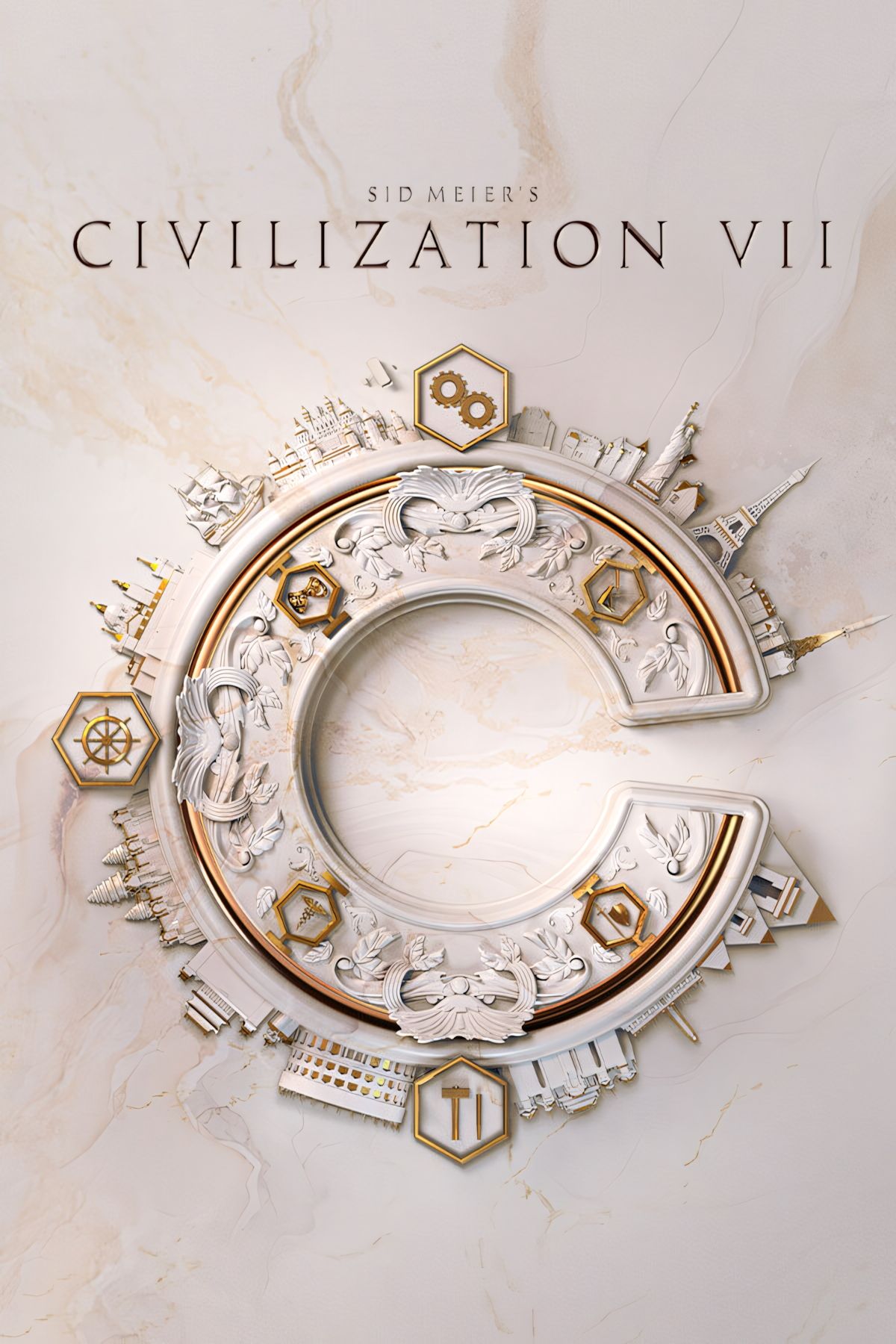
Despotism
This is your classicmilitaristicapproach.
Oligarchy
This is your standardgrowthoption, and it’s pretty much viable for any win condition.
Generally, a friendly greeting is recommended.However, there are, of course, options.
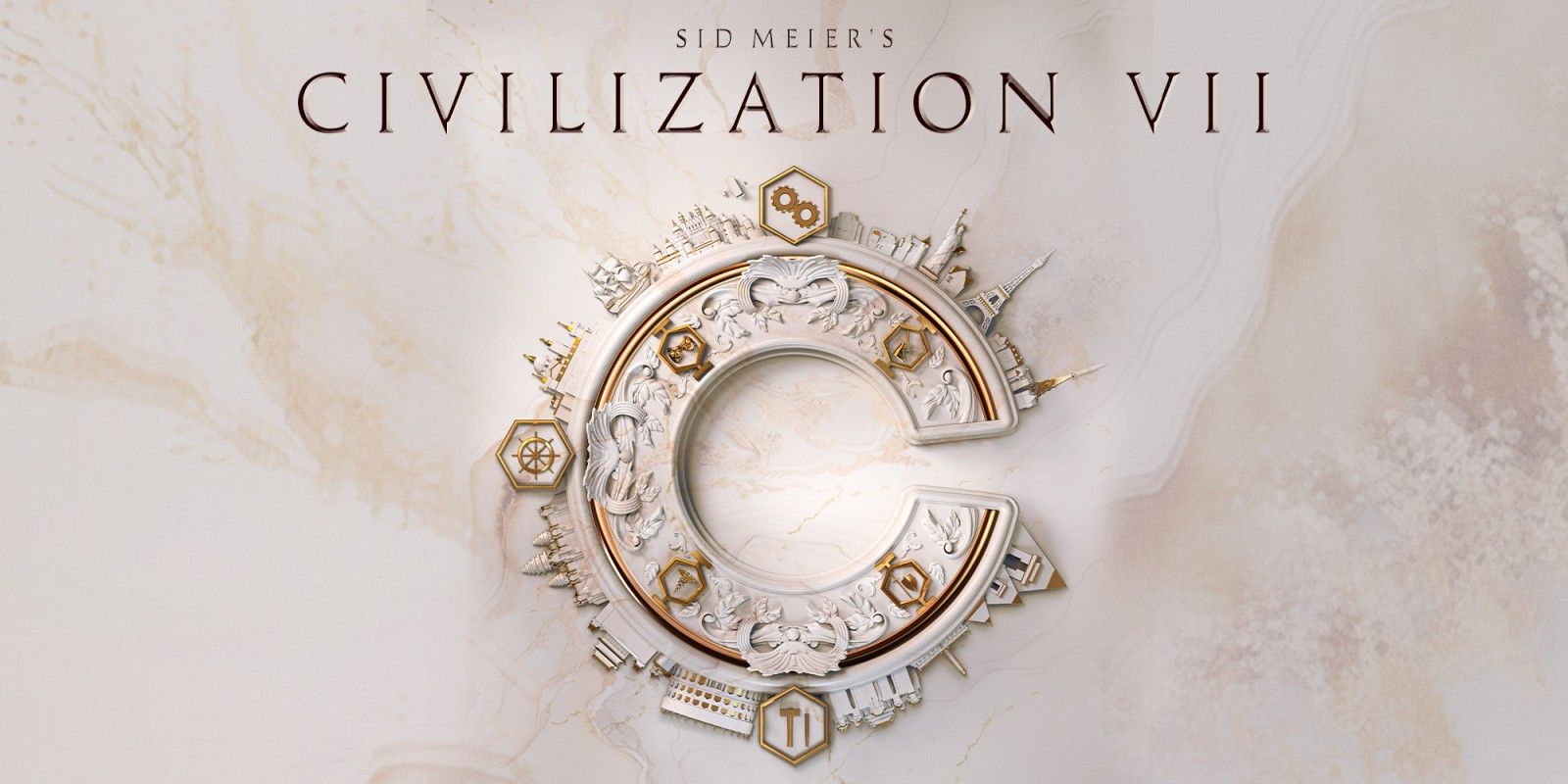
A friendly greeting costs 20 influence, or two turns of influence.
Influence can be used tobefriendIndependent Powers.
At standard speed, it costs 170 influence to befriend your first power.
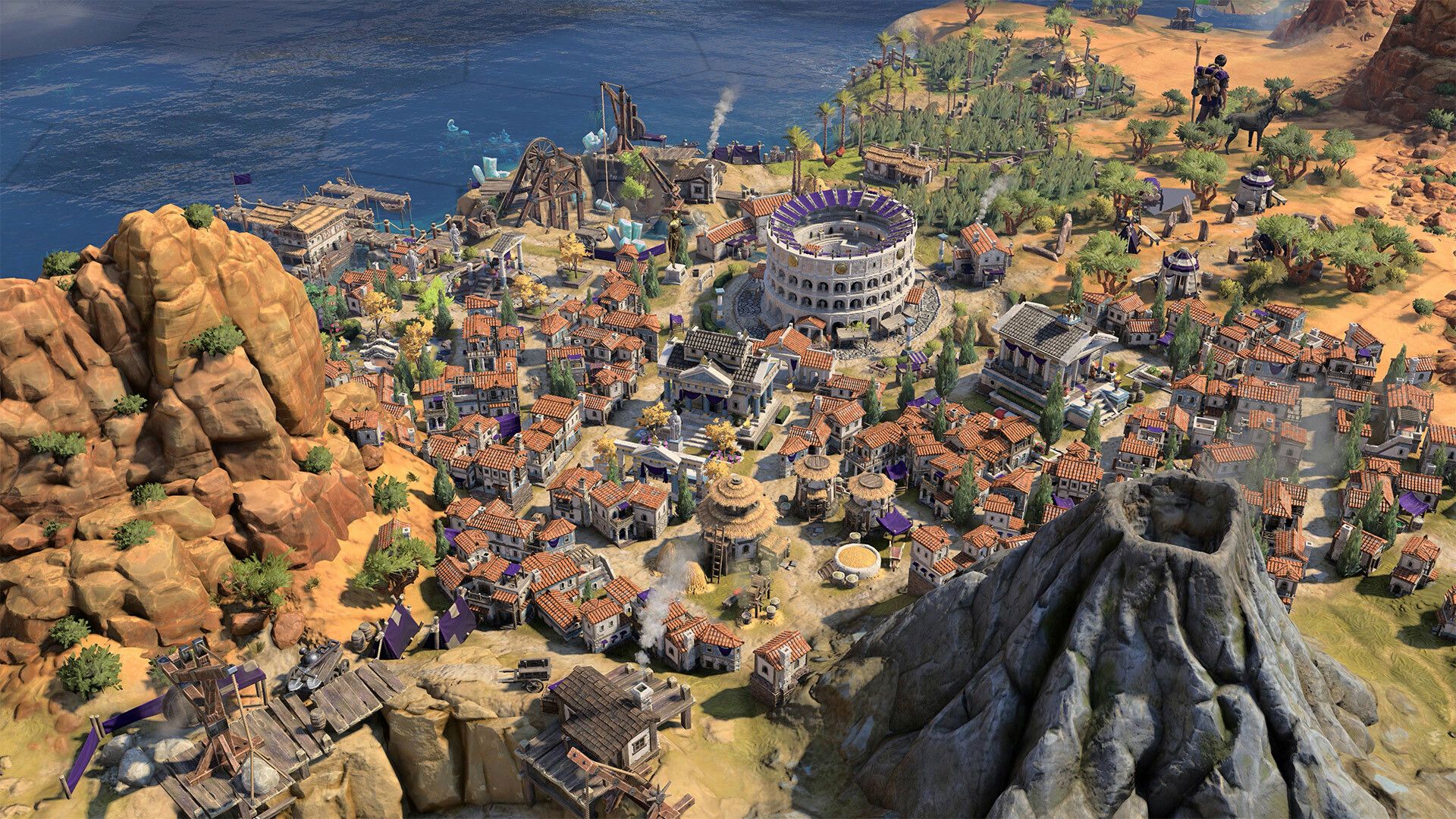
What could possibly go wrong?
Even early on, you have the choice ofOpen Borders,Open Markets,and aLocal Festival.
These are actually extremely powerful options.
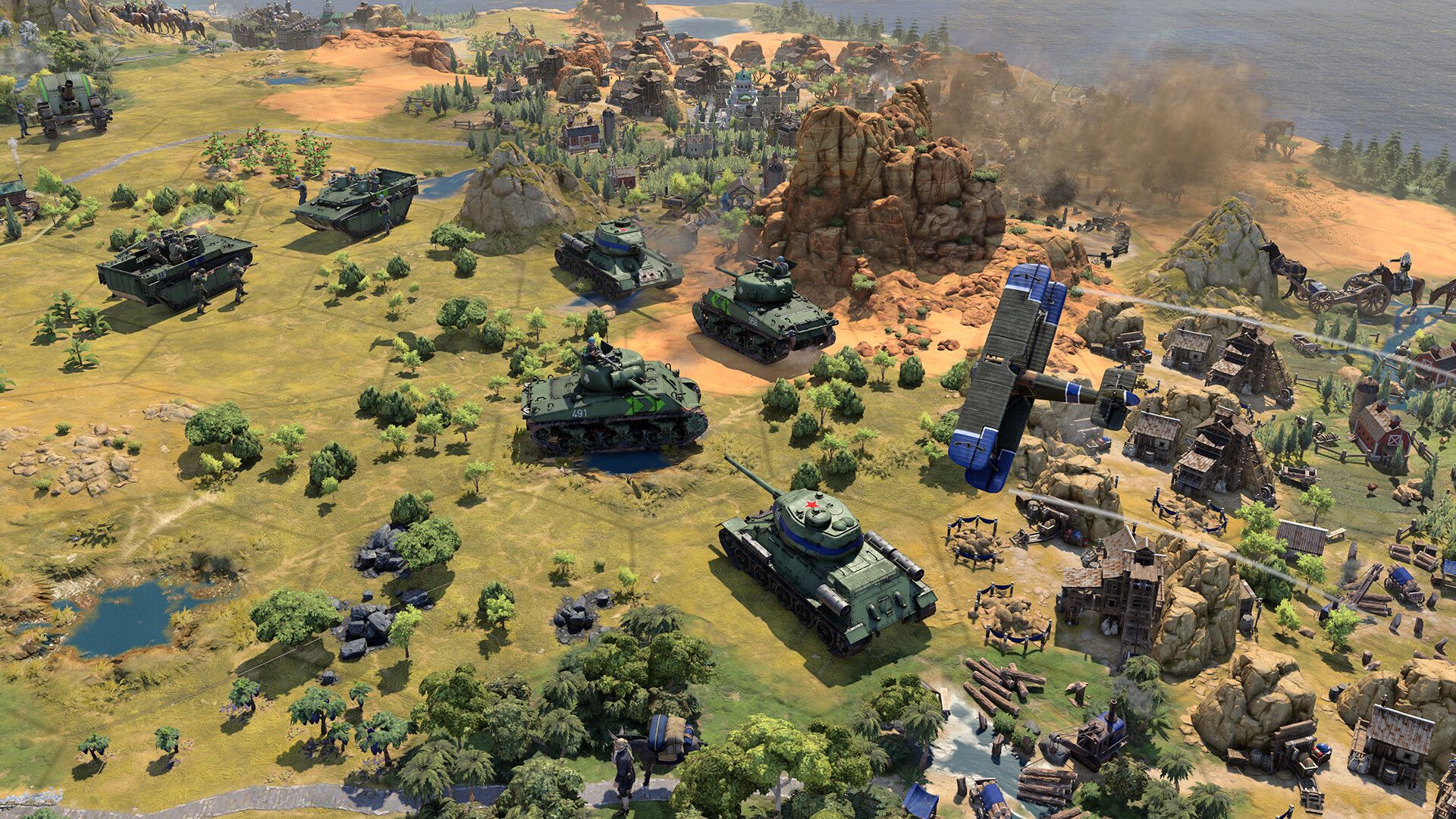
It may be a religious crisis, a plague, or something that impacts your military.
You willneedto select a crisis card to place into one of your crisis slots.
Usually a safe(ish) take, even if you have a small military force.
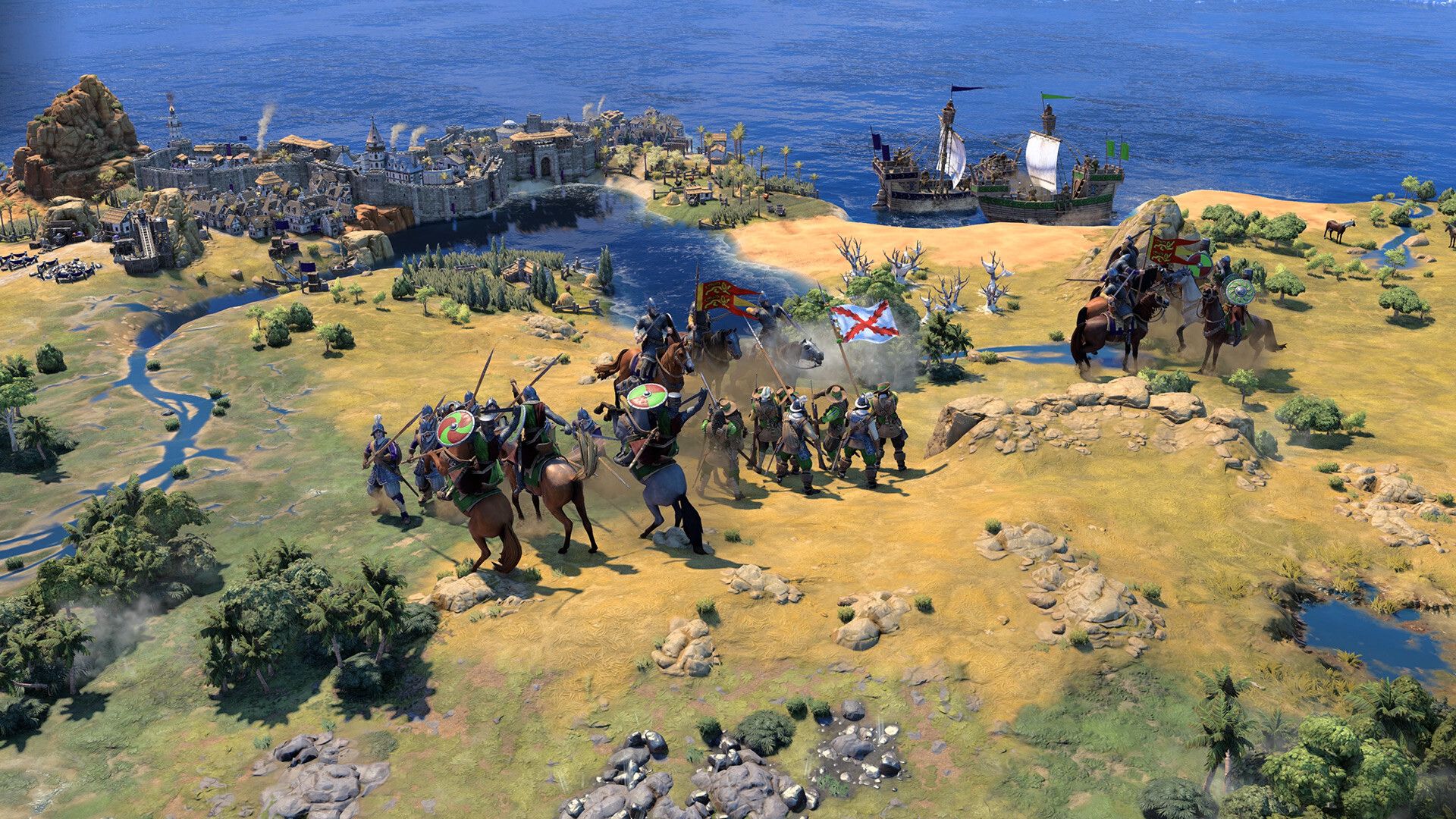
Your Rating
Your comment has not been saved
